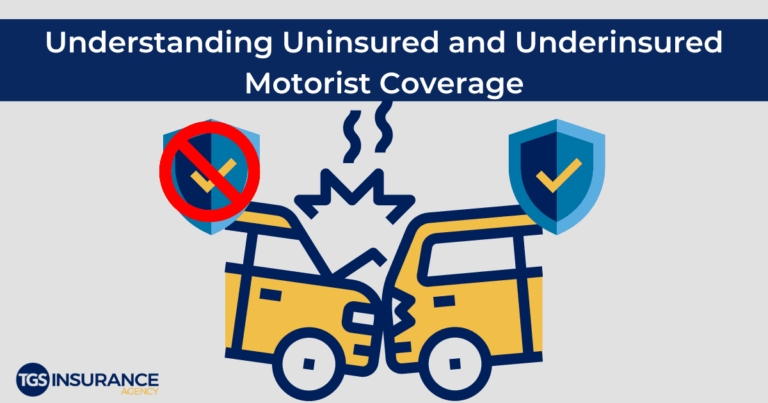Insurance Terms: A Guide to Understanding Insurance Language
Understanding insurance terms is essential for anyone navigating the world of insurance coverage. Many individuals find themselves confused by the complex language used in policies, which can lead to misunderstandings about what exactly is covered. By familiarizing yourself with common insurance definitions, you can gain clarity and confidence in your decisions. Whether it’s business insurance terms or nuances in an insurance glossary, being equipped with the right knowledge empowers you to protect your assets effectively. In this article, we’ll simplify these terms and provide insights into key concepts that every policyholder should know.
The language of insurance can often feel overwhelming, filled with jargon and specialized terminology. Grasping the fundamentals of insurance vocabulary is crucial for making informed decisions regarding your coverage options. Terms like risk management, liability, and indemnity frequently appear in discussions about safeguarding your business and personal assets. By breaking down these alternative expressions and their meanings, we aim to demystify the insurance landscape and help you understand how these concepts impact your financial security. With this knowledge, you’ll be better prepared to navigate your insurance needs with confidence.
Understanding Common Insurance Terms
Insurance terminology can often seem daunting, especially if you are not familiar with the industry. Terms like ‘deductible’, ‘indemnity’, and ‘peril’ can cause confusion for business owners trying to navigate their policies. Understanding these terms is crucial because they directly affect your insurance coverage and claims processes. For instance, knowing what a deductible means can help you prepare for the out-of-pocket costs you may incur when making a claim.
Additionally, having a grasp on common insurance definitions allows you to evaluate your options more effectively. When you understand the difference between terms such as ‘general liability’ and ‘professional liability’, you can better decide what coverages you need for your specific business situation. This knowledge empowers you to engage in more informed discussions with your insurance broker, ensuring you secure the best possible coverage tailored to your needs.
The Importance of Insurance Coverage
Insurance coverage is essential for any business, as it provides a safety net against unforeseen events that could potentially lead to significant financial losses. Having the right coverage means that you are protected from various risks, whether they stem from natural disasters, accidents, or liabilities. Understanding the different types of coverage available, such as property insurance and business interruption insurance, can help you ensure that your business is adequately insured.
Moreover, being clear about your insurance coverage can prevent disputes during claims. Knowing what is included in your policy and the conditions under which coverage applies allows for smoother interactions with adjusters and claims representatives. This clarity can expedite the claims process and ensure you receive the compensation you are entitled to, thereby safeguarding your business’s financial health.
Decoding the Insurance Glossary
Navigating the insurance industry necessitates familiarity with its unique glossary of terms. Terms like ‘accounts receivable insurance’ and ‘loss of use’ are integral to understanding how different policies can protect your business’s assets. A well-rounded comprehension of these terms helps business owners make strategic decisions about which policies to invest in for maximum protection.
Moreover, an insurance glossary serves as a practical tool for anyone looking to enhance their understanding of potential risks and liabilities. By familiarizing yourself with key terms, you can approach your insurance needs with confidence. This knowledge not only simplifies the process of selecting appropriate policies but also equips you to handle any insurance-related inquiries that may arise in the future.
Navigating Business Insurance Terms
Business insurance terms can often sound like a foreign language, but they are critical to understanding your coverage. Terms such as ‘coinsurance clause’ and ‘replacement cost’ are essential when evaluating how well your policy protects your assets. Being aware of these terms can help you avoid common pitfalls, such as being underinsured during a loss.
Furthermore, knowing the implications of various business insurance terms can help in negotiating better terms with your insurance provider. For example, understanding the concept of ‘insurance to value’ can lead you to ensure that your property is fully covered in the event of a loss. This strategic approach can save you money and headaches down the line, making your business insurance experience more effective and less stressful.
The Role of an Insurance Adjuster
An insurance adjuster plays a crucial role in the claims process, acting as the bridge between the policyholder and the insurance company. They investigate the circumstances of a claim, assess the extent of damage, and determine the appropriate compensation based on the policy terms. Understanding the role of an adjuster can help you navigate the claims process more smoothly and set realistic expectations.
Additionally, knowing what to expect from an insurance adjuster can alleviate some of the stress that comes with filing a claim. By being prepared with relevant documentation and understanding the types of information the adjuster will look for, you can streamline the process and potentially expedite your claim resolution. This proactive approach can lead to a more favorable outcome and ensure you receive the benefits you are entitled to.
Understanding Deductibles and Their Impact
Deductibles are a fundamental part of most insurance policies, representing the amount you must pay out of pocket before your insurance coverage kicks in. Understanding how deductibles work is essential for effective financial planning. A higher deductible often results in lower premium costs, but it also means you will have to pay more if a loss occurs.
Moreover, knowing how your deductible interacts with your coverage can help you make informed decisions. For instance, if you have a high-value asset, you may choose a lower deductible to minimize your financial exposure. Conversely, if you anticipate fewer claims, opting for a higher deductible could save you money in the long run. This understanding empowers you to tailor your insurance strategy to better fit your business’s risk profile.
Exploring the Concept of Indemnity
Indemnity is a key concept in insurance that refers to the compensation or reimbursement for losses sustained. By understanding indemnity, policyholders can better appreciate how their insurance policies are structured to protect them from financial setbacks. It underlines the importance of having adequate coverage to ensure that you can recover from losses without incurring significant out-of-pocket expenses.
Additionally, grasping the nuances of indemnity can help you navigate discussions with your insurance broker. Knowing how indemnity applies to your specific policies allows you to ask targeted questions and clarify your coverage needs. This proactive approach can lead to more customized insurance solutions that align with your business objectives and risk management strategies.
The Significance of Insurance to Value
The principle of insurance to value is vital for ensuring that your coverage accurately reflects the worth of the insured property. This concept is essential in preventing underinsurance, which can lead to devastating financial consequences in the event of a loss. By maintaining insurance that corresponds to the actual value of your assets, you safeguard your business against inadequate compensation.
Moreover, understanding insurance to value allows you to make informed decisions about your coverage limits. Regularly reviewing and adjusting your policy ensures that you are not paying for unnecessary coverage or, conversely, leaving yourself vulnerable due to insufficient protection. This ongoing evaluation can help optimize your insurance strategy and ensure long-term security for your business.
The Consequences of Total Loss
Experiencing a total loss can be one of the most challenging situations for a business owner. A total loss occurs when the cost of repairing damaged property exceeds its value, which can lead to significant financial strain. Understanding this concept is crucial for business owners to recognize the importance of having adequate property insurance.
Moreover, being aware of the implications of a total loss can motivate you to evaluate your current insurance coverage regularly. Ensuring that your policies cover the full replacement cost of your assets can prevent the financial fallout associated with a total loss. This proactive approach can provide peace of mind, knowing that your business is protected against the worst-case scenarios.
Frequently Asked Questions
What is accounts receivable insurance and how does it work?
Accounts receivable insurance protects your business’s cash flow by covering losses when customers default on their payments. This type of insurance ensures that your profit margin remains intact even when debts go unpaid, helping to stabilize your financial position.
What does an ‘Act of God’ mean in insurance coverage?
An ‘Act of God’ in insurance terms refers to natural events like floods or earthquakes that occur without human intervention. Such events are typically excluded from coverage in many policies, making it essential to understand your policy’s specifics regarding natural disasters.
What role does an adjuster play in the insurance claims process?
An adjuster is a representative from your insurance company who investigates claims. They assess the damage and determine how much compensation your business is entitled to for a covered loss, ensuring that you receive fair treatment based on your policy terms.
How does business interruption insurance protect my company?
Business interruption insurance compensates you for lost net profits and necessary expenses when a covered event disrupts your business operations. This coverage is crucial for maintaining financial stability during recovery periods after a loss.
What is a coinsurance clause and how does it affect my insurance policy?
A coinsurance clause requires you to insure your property to a specified percentage of its value. Failing to meet this requirement can lead to reduced payouts during a claim, as you’ll be considered a co-insurer, making it vital to maintain adequate insurance coverage.
What does COPE stand for in the context of insurance?
COPE stands for Construction, Occupancy, Protection, and Exposure. These factors are evaluated by insurers to assess the risks associated with a property and determine appropriate coverage levels.
What is a deductible in insurance policies?
A deductible is the amount you must pay out of pocket before your insurance company covers the remaining costs of a claim. Understanding your deductible is crucial for managing your financial responsibilities in the event of a loss.
How does depreciation impact my property insurance coverage?
Depreciation refers to the decrease in property value over time due to wear and tear or obsolescence. In insurance terms, it affects the compensation you may receive for a claim, as payouts are often based on the depreciated value of the property.
What does indemnity mean in insurance definitions?
Indemnity refers to the compensation or reimbursement provided by an insurance policy for losses or damages sustained. It ensures that the insured party is restored to their financial position prior to the loss.
What is the principle of insurance to value?
Insurance to value is the principle that the amount of insurance coverage should accurately reflect the value of the insured property. This ensures that in the event of a loss, you can recover the full value without facing underinsurance penalties.
What is general liability insurance and who does it protect?
General liability insurance protects your business from claims related to bodily injury or property damage occurring on your premises or due to your operations. It covers costs associated with legal defense and settlements, safeguarding your business from significant financial loss.
What is the difference between a hazard and a peril in insurance?
In insurance terms, a hazard is a condition that increases the likelihood of a loss occurring, while a peril is the actual cause of the loss, such as fire or theft. Understanding both is essential for evaluating risks and securing appropriate coverage.
What does loss of use insurance coverage entail?
Loss of use insurance provides coverage for the loss incurred when you cannot use your property due to damage. This insurance helps cover additional living expenses or lost rental income during the repair period.
What is meant by occurrence in insurance policies?
An occurrence is defined as the moment when a loss takes place, which may differ from when it is reported to the insurance company. Many policies specify coverage for losses that occur within a defined period.
What is a peril in insurance terminology?
A peril is the specific cause of a financial loss that an insurance policy covers, such as fire, flood, or theft. Understanding the perils included in your policy is vital for ensuring adequate coverage.
How does product liability insurance protect my business?
Product liability insurance protects your business against claims of injury or damage caused by defective products. It covers legal fees and settlements arising from lawsuits related to product defects, ensuring your business’s financial security.
What is professional liability insurance and who needs it?
Professional liability insurance, also known as errors and omissions insurance, covers legal costs resulting from claims that you failed to perform your professional duties correctly. It is essential for professionals like consultants, doctors, and lawyers to protect against potential lawsuits.
What does property insurance cover?
Property insurance covers physical assets, such as buildings and equipment, against damage from specific perils. This type of insurance is crucial for businesses to ensure their assets are protected from unforeseen events.
What is replacement cost in insurance terms?
Replacement cost refers to the amount it would take to replace damaged property with a new item of similar quality. This concept is critical in determining how much coverage you need to adequately protect your assets.
What constitutes a total loss in insurance?
A total loss occurs when the cost of repairing damaged property exceeds its actual value. In such cases, the insurance company may declare the property as a total loss and compensate you accordingly.
| Insurance Term | Definition |
|---|---|
| Accounts Receivable Insurance | Protects profit margin if customers default on payments. |
| Act of God | Natural events causing damage, with no human intervention. |
| Adjuster | Insurance representative assessing your claim. |
| Business Interruption Insurance | Reimburses lost profits during business downtime. |
| Coinsurance Clause | Percentage of property value to avoid co-insurance penalties. |
| COPE | Construction, occupancy, protection, exposure factors in property assessment. |
| Deductible | Amount paid before insurance covers the loss costs. |
| Depreciation | Decrease in property value over time. |
| Indemnity | Compensation for loss or damage. |
| Insurance to Value | Coverage amount reflects the true property value. |
| General Liability | Covers injuries to others on your property. |
| Hazard | Situation increasing loss likelihood, different from peril. |
| Loss of Use | Coverage for inability to use property due to damage. |
| Occurrence | Time when a loss occurs, distinct from reporting time. |
| Peril | Cause of loss, e.g., fire, flooding. |
| Product Liability | Covers defects in products you sell or manufacture. |
| Professional Liability | Covers legal costs for contractual or malpractice claims. |
| Property Insurance | Covers assets from specified loss causes. |
| Replacement Cost | Cost to replace damaged property with new equivalent. |
| Total Loss | Occurs when damage repair costs exceed property value. |
Summary
Understanding insurance terms is crucial for making informed decisions regarding your coverage. Insurance terms can often be complex and confusing, but familiarizing yourself with these key definitions can empower you to navigate your policy and avoid potential pitfalls. Whether it’s knowing about deductibles, understanding indemnity, or recognizing the importance of business interruption insurance, being well-informed helps ensure that you are adequately protected against unforeseen events.







